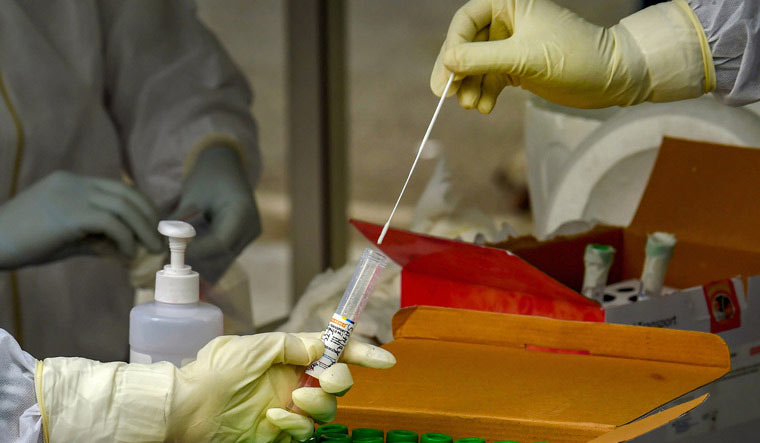Scientists have found that seven out of 27 COVID-19 diagnostic tests which are currently in use may be underperforming possibly due to the novel coronavirus mutating, and have cautioned that the effectiveness of testing methods needs to be re-evaluated. According to the study, published in the journal Royal Society Open Science, many of the tests were developed early in the outbreak when the virus was first identified, and its genetic material was sequenced.
The researchers from York University in Canada said it is important to re-evaluate the methods periodically to ensure they still work.
"COVID-19 tests use polymerase chain reaction (PCR) assays to diagnose the virus in patients, but if those assays are mismatched due to genetic variability in the viral genome, that raises the concern that the tests may not be detecting all the circulating variants of the virus and results could be inaccurate," explained Kashif Aziz Khan, corresponding author of the study.
Correcting any mismatches between the assays and the coronavirus genome may help improve the sensitivity and accuracy of some of the diagnostic tests, the researchers said in a statement.
According to the scientists, the early sequencing of the genetic material of the virus allowed for the development of PCR detection protocols by multiple national organizations that were published by the World Health Organization (WHO).
These tests, according to the study, use probes that bind to the viral genetic material in a patient sample and help produce several detectable copies of it, if the person is infected with the coronavirus.
ALSO READ
- 335 fresh Covid cases in India
- From polio to Covid-19: What we can learn from polio eradication for pandemic response
- Sudha Murty praises Vivek Agnihotri's 'The Vaccine War'
- China won't require COVID-19 testing for incoming travellers starting Wednesday
- North Korea to allow its citizens abroad to return home, a sign of further easing of pandemic curbs
- India reports more than 10,000 new Covid cases
However, the researchers said these tests that do not account for variations and mutations.
"Given the potential for the viruses to mutate, genetic variations in the viral genome at primer/probe binding regions can result in potential mismatches and false-negative results," the scientists wrote in the study.
In the current study, the researchers tested genetic variations in more than 17,000 publicly available viral genome sequences worldwide, and performed an exhaustive evaluation of 27 published diagnostic PCR assays.
The analysis showed the presence of mismatches in the probe binding regions of the coronavirus genetic material in seven out of the 27 assays.
"These findings are potentially important for clinicians, laboratory professionals and policy-makers as it gives them a better idea of which tests may deliver the best results, and how to ensure the tests they are using are properly matched to the virus genome," Khan said.



